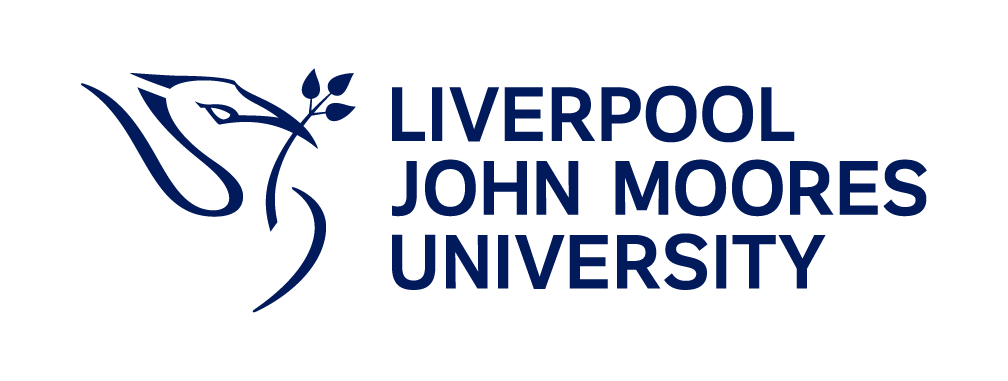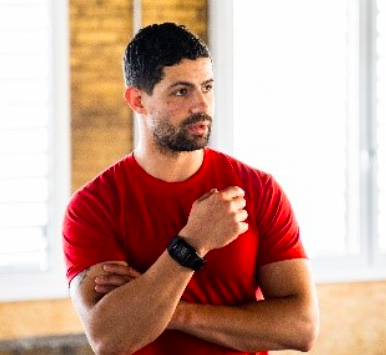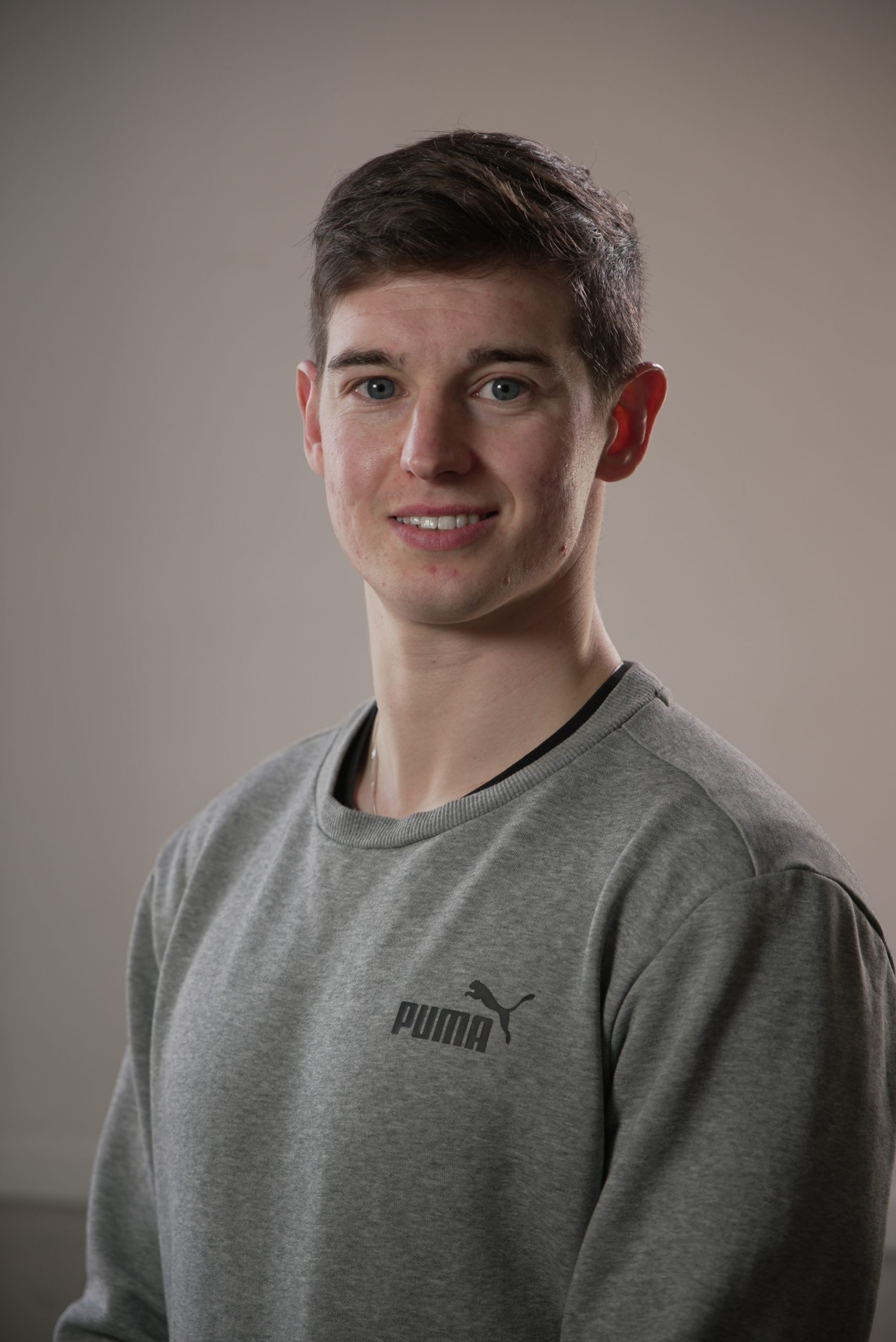Course Details
Delivered through blended learning, you can work full-time and study this MSc in Sports Performance Analysis. This MSc provides you with an in-depth and relevant focus on applied and academic sports performance analysis skills that are needed for the role as a sports performance analyst in elite and professional sports environments.
A degree from a recognised global leading sports university
This degree is designed to professionally develop practitioners to progress in both their practical and future academic career. The MSc in Sports Performance Analysis is awarded by Liverpool John Moore’s University (LJMU), graduates will hold an instantly recognised qualification from one of the world’s leading universities for sports science and physical education.
This course has been co-developed by Portobello Institute and the expert academic team in LJMU.
Level
PostgraduateQualification
Masters Degree| Course | Delivery Mode | Start Date | Duration | |
|---|---|---|---|---|
| MSc Sports Performance Analysis |
Blended Learning
|
12th October 2024 | 3 academic semesters |
Overview
What will I study during this MSc Sports Performance Analysis course?
During the PGC in Sports Performance Analysis course, you will delve into the intersection of sports, technology, and data analytics.
This programme offers you the opportunity to develop and progress your career by providing a rigorous, in-depth and relevant focus on applied and academic sports performance analysis skills. You will develop your understanding and ability to apply knowledge and analysis to various contexts through a range of opportunities, including the use of your own work experience, case studies, performance analysis scenarios, presentations, problem-based learning exercises and study visits.
Graduates who have successfully completed the course will be able to demonstrate skills and competencies in the following areas;
Sport Performance Analysis Practical Skills
- Analyse the degree, to which the performance sport sector has incorporated advances in technology and assess the impact that this has had on applied practices.
- Foster a critical awareness of global sports performance analysis development in the context of evidence-based practice.
- Appraise various operational strategies employed in sports performance and sports technology domains.
- Investigate and evaluate.
- Foster critical awareness and thorough understanding of the performance sports sector, combining knowledge and analysis acquired to develop a relevant industry-specific original report to a professional standard.
- Demonstrate specialist knowledge and understanding of the performance sport sector and the external context in which it operates, to evaluate strategic choices and make informed strategic decisions for change implementation.
- Conduct independent research and use acquired knowledge to analyse and evaluate specific issues surrounding the performance sports sector.
- Demonstrate self-awareness, self – reflection and self-development to promote higher-level transferrable skills.
Practical/transferable skills including employability
- Demonstrate a sound understanding of practical issues relating to Sports Performance Analysis Sector and be capable of providing comprehensive advice in dealing with them.
- Work independently to plan and deliver work of a professional standard and demonstrate self-direction and originality in problem-solving.
- Demonstrate the qualities and transferable skills necessary for employment requiring:
- the exercise of initiative and personal responsibility
- decision-making in complex and unpredictable situations
- Analytical skills, evaluation and synthesis in dealing with a professional sports environment challenge
In addition to the compulsory module topics that will prepare you for working in the Performance Analysis domain, we also want to ensure that as a Portobello Institute graduate you are standing above others. To do this we have invested in working with experts in the field who will host webinars, activities and opportunities to apply your classroom-based content into practice. We have also partnered with the PFSA which is a globally recognised education provider in areas such as Performance Analysis, Talent Identification and Recruitment and Opposition Analysis. This partnership is important as we have secured the opportunity for all students to leave Portobello with at least a Level 1 and Level 2 in these areas as part of their studies.
-
Biomechanical Analysis for Sports Performance (20 credits)
Module Aims:
This module focuses on motion capture and movement analysis backed up by other biomechanical analysis techniques including ecological measures and the use of force platforms. Students will be expected to perform a small research project, presenting the results as a poster conference at the end of the semester. Reflective work throughout the module will allow the student to develop a greater understanding of, and employability possibilities within, biomechanical research. Students will be given the opportunity to research either a project of their choice of select from a given list of project titles.
The aims of this module are aligned with the qualification descriptors within the Quality Assurance Agency’s Framework for Higher Education Qualifications. The module aims to provide the student an opportunity to examine an area of biomechanics, focusing on motion analysis, in detail. Students are encouraged to evaluate, and critically reflect on their chosen area of investigation. This module aims to prepare students for post-graduate study, and further research suitable for academic publication.
Learning Outcomes:
Critically review the process of motion capture and analysis in sport, exercise and rehabilitation settings
Critically review research methods used in biomechanical analysis and employ appropriate research design for assessment of biomechanical outcomes in a chosen performance setting.
Collect, analyse and present data in an appropriate manner
-
Notational Analysis for Sports Performance (20 credits)
Module Aims:
This module focuses on the development of transferable skills, critical thinking and proficiency in notational performance analysis and assimilation. The module will provide in depth information on common hardware and software used in analysis of performance in sport (i.e., Dart Phish, Performa Sport, Sports Code by Hudl etc.). Develop the ability to implement appropriate analysis procedures for different contexts (e.g., for backroom support, broadcast / media review and spectator reporting).
In addition to developing analytical skills for the sports industry, students will gain transferable skills in critical analysis, communication and information assimilation working with coaches, support staff and athletes to affect change in programme design and implementation.
The module will also explore data security, protection and ethical issues
Learning Outcomes:
Critically evaluate, design and implement notational analysis for key performance monitoring and reporting.
Critically review requirements, challenges and limitations of effective data analysis in sport
Critical understanding of contemporary issues in sports performance analysis, ethics, youth and developmental sports considerations and security for data analysis in sport
-
Performance Analysis for Individual Sports (20 credits)
Module Aims:
This module equips students with the theoretical and practical knowledge for conducting needs analysis for individual and sport, designing and implementing analysis for performance and related parameters in individual sports. The module focuses on evaluating different parameters of performance from technical, tactical, physiological, biomechanical and injury risk perspectives. In addition, the module explores the application of this knowledge to performance analysis, the development of sporting excellence and injury prevention.
- Needs analysis for individual Sport
- Technical and Tactical development and monitoring in individual sport
- Technology and software for performance analysis
- Key performance indicators for monitoring and development in training
- Practical implementation of monitoring and analysis in sport
Learning Outcomes:
Learning Outcomes
After completing the module, the student should be able to:
1 Implement and critically review analysis procedures commonly used to track parameters of performance (e.g., strength, endurance, speed, power) for individual sports activities.
2 Demonstrate competence in conducting a needs analysis, identifying appropriate performance indicators, completing data collection, analysis and reporting for individual sports settings.
3 Critically review research examining both lab-based and ecological performance analysis in individual sports.
-
Performance Analysis for Team Sports (20 credits)
This module equips students with the theoretical and practical knowledge for conducting needs analysis for pitch-based team sport, designing and implementing analysis for performance and related parameters in intermittent pitch-based performance sports. Specifically, this module will explore tactical analysis that performance teams use to reverse engineer winning and losing performances for their own team and opposition team.
- Needs analysis for pitch-based sports
- Technical and Tactical development and monitoring in team sport
- Technology and software for team performance analysis
- Key performance indicators for monitoring and development in team training
- Practical implementation of monitoring and analysis in team sport
Learning Outcomes:
After completing the module, the student should be able to:
1.Critically review research underpinning performance analysis technologies commonly used in team sports
2. Critically evaluate performance indicators using performance analysis technology (such as GPS) and a range of analytics software (excel, R)
3. Collect, analyse, interpret and report on performance data for a team sport -
Personal and Professional Development (20 credits)
This module extends students’ learning experience by providing them with an opportunity to reflect on, and evaluate, their personal experiences of a given employment related to their area of academic study.
- Communication skills
- Team working skills
- Reflective writing
- Oral presentation skills
- Employability
Learning Outcomes:
After completing the module, the student should be able to:
1. Demonstrate competence working in an effective, rational and organised manner, both independently and with others, in a real-world work environment; engage in consistent and appropriate communication with colleagues and superiors, and adhere to health and safety, legal and ethical obligations
2.Reflect on, and evaluate critically on their performance, abilities and achievements in the workplace. Plan for personal and professional development post-graduation
3. Critically reflect on practices deployed in applied settings and demonstrate continual professional development in their applied performance analysis skills. -
Research Methods for Sports Performance Analysis (20 credits)
The module is designed to provide students with an understanding of the skills needed for planning, organisation and practice of research in health sciences.
- Statistical methods, and examination of already published data to examine validity/reliability.
- Proposal writing, the project process, managing the project and your supervisor, ethical processes, and dissemination of project output.
- Computer software skills including advanced word processing layout and formatting skills for large projects, referencing software, poster design, project funding, journal publishing, and statistical techniques in statistical software.
Learning Outcomes:
After completing the module, the student should be able to:
1.Formulate a novel research proposal at the forefront of their academic discipline and demonstrate critical scientific writing skills
2.Comprehensively understand ethical processes and procedures when undertaking research involving human subjects.
3.Identify, employ and critically evaluate a range of statistical skills and techniques, showing a comprehensive understanding of their use, applicability and faults.
-
Sports Performance Analysis Dissertation (60 credits)
This module will enable students to reinforce the skills necessary to carry out a scientific programme requiring significant research. It will allow students to demonstrate the final development of their subject knowledge, skills and understanding through extended research based on laboratory, literature or field work. This research will lead to the presentation of a detailed written report.
Students will reflect upon their scientific background and intended academic outcome in choosing the subject for their dissertation. Students carry out an experimental project, preceded by an appropriate directed literature survey, within an area of staff expertise in Portobello Institute. Students are expected to work independently throughout the project.
- Analysis, appraisal and presentation of the results.
- Work will be communicated both as a fully documented scientific report and in an oral presentation.
- Practical work: Application of scientific knowledge and experimental skills to the design and execution of a subject-based practical project.
- Progress report writing including ability to plan and develop ideas.
Learning Outcomes:
After completing the module, the student should be able to:
1.Plan and execute a piece of original research, placed appropriately in the existing context within sports performance analysis
2.Select, execute and interpret appropriate statistical tests at an advanced level of capability using statistical software at a high level of competency.
3.Demonstrate competence in completing self-managed research
Who will I learn from?
Programme Manager
Personal Academic Tutor
Each student is assigned a personal academic tutor to support you throughout your learning journey. They are available to offer you telephone and email support at any time. You can arrange to meet them for further one to one guidance at a time convenient to you.
Many of our past graduates have found it is the opportunity to ask a simple question, seek direction and submit a draft of their assessment that supported them most to successful completion. Emailing your tutor at any stage during your programme to ask a query or submit a draft of your assessment supports you to achieve your personal best throughout your studies with Portobello.
This level of one to one support is a particular benefit to choosing Portobello as your Institute of choice to complete your studies.
How will I learn?
Delivery Mode
This MSc has been specifically designed for delivery by online learning with live interactive webinar sessions. It is very suited to you if you have a busy work and home life and want to fit study around this. Blended Learning takes the schedule of a traditional face-to-face learning programme and restructures it to reduce the contact tuition time by introducing more online learning together with one-to-one tutor support.
This mode of delivery includes contact tuition via web-based e-learning and interactive webinar sessions. The e-learning platform is interactive including live and recorded sessions, webinars with weekly content and assigned tasks to themes and topics. The time commitment will be greater than a blended learning programme. A blended learning programme usually has a single workshop at the start of a module whereas a flexible delivery programme will usually have a minimum of 1 weekend per month attendance required.
Tutor Support
You can email your tutor at any stage during the module to ask a simple query and there will be scheduled opportunities to submit a draft of your assignment. Our programme management team are always available to offer you telephone and email support and if you need to, you can arrange to meet them for further one-to-one guidance. For more information about our team, click here. Many of our past graduates have found it is the opportunity to ask a simple question, seek direction and submit a draft of their assessment that supported them most to successful completion.
This level of one-to-one support is unique to blended learning and is a particular benefit to choosing this mode of study. Portobello Institute has invested in a team of programme managers and tutors who are experienced sports scientists as well as qualified and knowledgeable educators. They are available to assist you at every stage of this programme.
Online Learning Portal – ePortobello
During the induction seminar, we will show you how to navigate and find what you need with all of the information you need to complete this programme uploaded onto ePortobello. The content of this programme is set out in an easy-to-follow format with a combination of notes, articles, podcasts and other materials that will help you understand the subject and complete your assessment.
Course Structure
This is a blended learning course delivered over three academic semesters with online learning, supported tutorials and webinars held on Saturdays during term time. Attendance at webinars and tutorials is recommended however not compulsory.
Each semester has a combination of webinars and tutorials designed to support the student in completing the modules scheduled for that semester. Webinars/tutorials are held on a Saturday from 10 am to 4 pm and are available to log in to, from an off-site location. Attendance at webinars and tutorials is not mandatory and is delivered with the purpose of introducing the module tutor, setting out the learning outcomes, content, assessment strategy and expectations for skills/knowledge development and supporting you in achieving the requirements. Webinars are recorded and can be accessed at a later date.
During this Masters programme, you will complete seven modules. You will study three modules in semester one and two. Your final semester will be dedicated to your dissertation project in Sports Performance Analysis.
Indicative schedule
This is a sample schedule of modules and is subject to change.
Trimester
| Module | Credits | |
| Semester 2 | Performance Analysis for Pitch-based sports | 20 |
| Semester 2 | Performance Analysis for Individual Sports | 20 |
| Semester 2 | Professional Development in Applied Performance Analysis | 20 |
| Semester 1 | Biomechanical Performance Analysis | 20 |
| Semester 1 | Notational Performance Analysis | 20 |
| Semester 1 | Research Methods for Sports
|
20 |
| Semester 3 | Dissertation in Performance Analysis | 60 |
COURSE SCHEDULE - October 2024 Start Date
- Semester 1 runs from 12/10/24 – 25/01/25
- Semester 2 runs from 08/02/25 – 31/05/25
Tutorial webinar/seminar held on allocated Saturdays, 10am – 4pm.
- Semester 3 encompasses the Capstone Project and runs from 06/06/25 – 31/08/25
During this semester, you will work with your supervisor to complete a work-based project. Individual tutorials are generally held at times convenient to both.
Webinars are recorded so you may review them at a later stage if you are unable to attend the live sessions.
How will I be assessed?
SMART assessments – we use a range of assessments for each module designed to support a broad range of learning styles, giving you the opportunity to excel.
The primary aim of the varying assessment styles is to support you in demonstrating your knowledge of theory and practice as a result of a range of assessments.
The dissertation project provides the opportunity for an extended piece of formal scientific writing preparing you for your future career and the need to keep scientific-based patient notes.
We encourage you to reflect on your knowledge gained with a number of assignments designed to explore your learning journey. All of these assessment methods are seeking to support you to combine theory with scenario-based learning and how to practically implement these methods into your everyday practice.
Career prospects
Studying sports performance analysis can lead to a range of exciting career opportunities within the sports industry. Here are some potential career prospects for individuals with a background in sports performance analysis:
- Performance Analyst: Working with sports teams, organizations, or individual athletes to collect and analyse performance data, providing insights and recommendations to improve performance and enhance decision-making.
- Sports Technology Specialist: Utilizing technology and software tools to capture and analyse performance data, managing data systems, implementing new technologies, and staying up-to-date with advancements in sports technology.
- Video Analyst: Analysing game footage and using video editing software to tag and analyse key events, player movements, and tactical strategies, providing valuable feedback to coaches and players.
- Researcher: Conducting research studies in the field of sports performance analysis, exploring new methodologies, and contributing to the advancement of knowledge in the field.
- Sports Science Consultant: Providing consulting services to sports organizations or individual athletes, offering expertise in performance analysis, data interpretation, and performance enhancement strategies.
- Data Scientist: Applying advanced data analytics techniques to sports performance data, using statistical modelling, machine learning, and data visualization to uncover patterns, trends, and insights.
- Opposition Analyst: Analysing the performance data and strategies of opposing teams or athletes to gain insights, helping coaches develop game plans, and providing tactical recommendations.
- Scout/Talent Reporter: Observing performances to report on potential signings and how these players/athletes could be integrated into different team environments.
- Educator/Trainer: Teaching sports performance analysis courses or workshops, educating coaches, athletes, and students on the principles and techniques of performance analysis.
These are just a few examples of the potential career paths available to individuals with a background in sports performance analysis. The specific opportunities may vary depending on factors such as education level, experience, specialization, and personal interests. It is also worth noting that sports performance analysis skills are increasingly sought after across various sports organisations, including professional teams, national governing bodies, sports technology companies, and academic institutions.
What is the role of a sports performance analyst?
If you are interested in assessing performance in sports to develop an understanding of actions that can inform decision-making, optimise performance and support coaches and players in their journey towards optimal results, then a role in sports performance analysis will be of interest to you. Professional sports teams employ performance data analysts to manage the data they gather and analyse to manage the development of their athletes. When working in this area of sport you will be helping professional athletes and teams achieve optimum levels of performance. As a sports performance analyst, you will utilise the principles of measurement and assessment strategies in sport, exercise and physical education.
Read More: Discover Sports Performance Analysis in your Sports Science Career
Who else has studied this degree?
Related Courses
Speak to an expert
Choosing a course that will lead you to your career of choice is a significant decision. Understanding the delivery modes, supports available, career opportunities and further study options are all key considerations when making your choice. Our course adviser team are experts in the courses Portobello offers, the employment prospects and possible progression routes to Masters programmes – they will guide you through the detail and support you with any queries you may have.
It is important you make the right choice for you and choose the Institute and course that will best suit your needs.
Your Consultant

Hannah Meade
My name is Hannah, I am the Sports Admissions Advisor here at Portobello Institute. I can be contacted directly on 01 892 0029 or emailed at [email protected].
I am your “go-to” person in terms of support and guidance as you navigate through the different courses and career paths within the Sports industry. I help find the right course fit for you that aligns with your career goals and aspirations. During this exciting time, it’s important that you have a dedicated and consistent support on the other end of the phone, and I am that person for you. Feel free to get in touch!
How do I apply?
Entry to this course is by direct application to the college.
Applicants will be required to have a minimum of a 2.2 (or equivalent) in a related subject discipline. You should also submit an up-to-date CV and copies of awards/professional qualifications.
All applicants must be able to demonstrate proficiency in the use of the English Language.
Application Process
Step 1
Complete the online application form.
Step 2
Applicant’s application will be reviewed by the Portobello enrolment team.
Step 3
Applicant will be contacted by the Portobello enrolment team to confirm place on the course or for more information.
Please note places on this course are only confirmed once tuition fees have been received.
Students will be registered as a post-graduate degree student with Liverpool John Moore’s University.
Fees & Payment Options
Note: All payments for this course are made to Portobello Institute
Fees
Course Price
Year 1 base fee
Exam Body Reg. Fee
Overall Course Price
Total amount due
Easy Payment Plan
Payment Option 1
30% deposit payment (€3,097.50), followed by 10 scheduled payments on the first of each month, commencing the 1st of the month after the start date of the course. Includes one off instalment fee of €395.
- €722.75 due in month 1
- €722.75 due in month 2
- €722.75 due in month 3
- €722.75 due in month 4
- €722.75 due in month 5
- €722.75 due in month 6
- €722.75 due in month 7
- €722.75 due in month 8
- €722.75 due in month 9
- €722.75 due in month 10
Available Courses
| Course | Delivery Mode | Start Date | Duration | Fees Per Year | |
|---|---|---|---|---|---|
| MSc Sports Performance Analysis |
Blended Learning
|
12th October 2024 | 3 academic semesters | €9,930.00 |
Apply
Hooray! One small step for you, one giant leap for your future! Enter your email and you will be redirected to our application platform, where you can complete your application in your own time. Here's what to expect:
- Enter your email, name and mobile phone number
- You'll be redirected to our Application platform
- Start your application
- Choose your preferred payment option
(No payment required at this stage) - Submit your application
- One of our course advisors will review and be in touch
Apply
Hooray! One small step for you, one giant leap for your future! Enter your email and you will be redirected to our application platform, where you can complete your application in your own time. Here's what to expect:
- Enter your email, name and mobile phone number
- You'll be redirected to our Application platform
- Start your application
- Choose your preferred payment option
(No payment required at this stage) - Submit your application
- One of our course advisors will review and be in touch
Apply
Hooray! One small step for you, one giant leap for your future! Enter your email and you will be redirected to our application platform, where you can complete your application in your own time. Here's what to expect:
- Enter your email, name and mobile phone number
- You'll be redirected to our Application platform
- Start your application
- Choose your preferred payment option
(No payment required at this stage) - Submit your application
- One of our course advisors will review and be in touch












